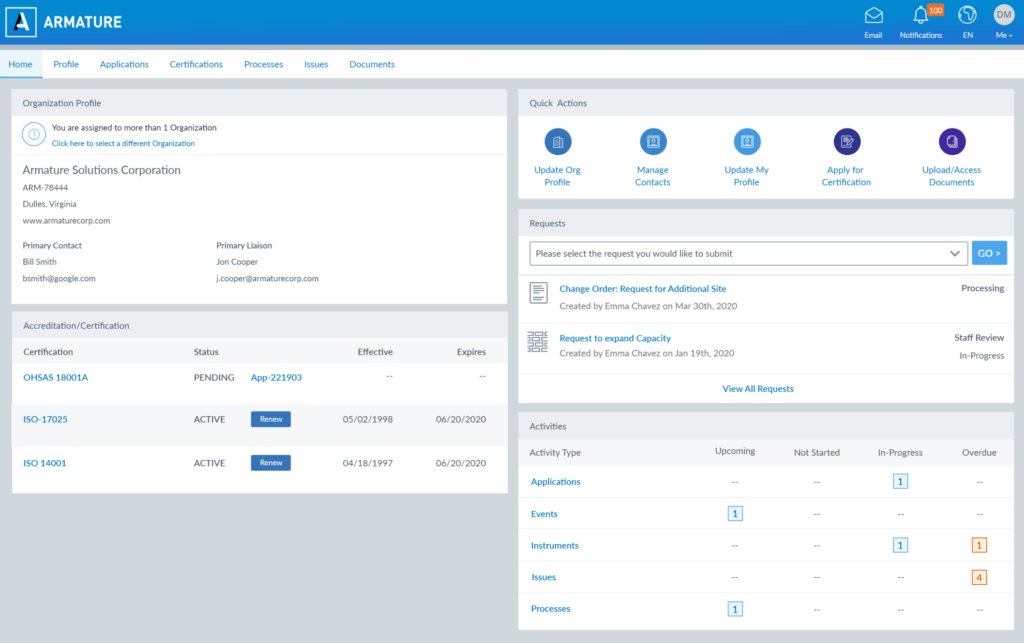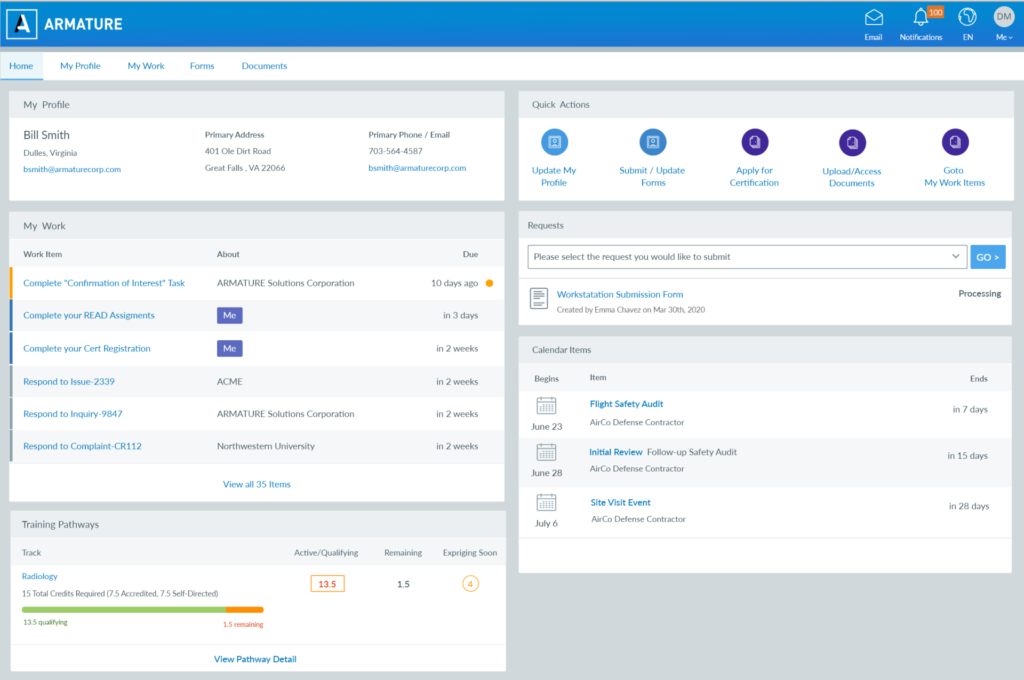Most modern businesses strive to make interactions easier for their customers, vendors, employees, and other stakeholders. Easy interactions typically mean a more engaged and motivated community. One way of achieving this is through the provision of certification management software with self-service portals.
The idea of self-service portals has been around for a while – you’ve likely had some experience using tools such as LinkedIn, or Facebook, for example. In these examples, you can access your own area within an application, update your information, set up and invite people to an event, share news and other information. But how does this apply to communities such as accreditation, certification, audit, supplier management, compliance, and quality (as well as certification management software)?

Certification Management Software Example
Let’s use the example of a personnel certification organization that has been using a combination of downloadable forms and email communication as part of its core certification process. The typical steps in a certification lifecycle will include things like:
þ Preparation (e.g., reviewing standards or requirements)
þ Completing an Application Form
þ Remit Application Fees
þ Application Review
þ Evaluation/Assessment
þ Evaluation/Assessment Review
þ Decision
þ Continuing Professional Development Tracking (CPD/CEU)
þ Re-certification
If you think about the volume of paperwork and information that needs to be exchanged in what seems to be a simple process, it is quite extensive. Up-to-date standards need to be developed and shared, application forms need to be completed and sent, there needs to be some financial transaction mechanism set up to process and confirm payments, applications need to be issued, completed, and returned, and so on. In addition, all of this data and information should be stored in an organized and accessible environment.
Conducting all of these activities can be time-consuming and inefficient for staff, applicants, institutions, and reviewers if conducted manually. And, it can be difficult to collect and store documentation in a consistent place that can be accessed by the right people at the right time. This is where self-service portals can play a transformational role.
Self-Service Portals
If you could configure all of your data collection tools and processes in a single platform you’ll achieve significant time savings, drive user adoption, and create opportunities to enhance productivity – including certifying a higher volume of personnel, products, or organizations; managing supplier relationships more effectively; conducting audits more efficiently, and; better managing risk. You could provide controlled access to your stakeholders, depending upon their roles within your business ecosystem, and enable them to view and act upon assigned tasks, embark on a new activity, or review critical data to make a key decision. This is what self-service portals allow.
ARMATURE Fabric is such a system and can be applied to support activities such as accreditation management, certification management, audit management, and vendor risk management. Following the personnel certification example above, ARMATURE’s self-service portals enable staff to upload and edit standards, process applications, schedule evaluations, coordinate evaluation reviews, and initiate decision-making processes. When each staff member logs into the system, they will see a dashboard that shows them all the tasks they need to complete, along with click-through actions.
From an external user perspective, self-service portals make it easy to update contact and organizational/program details, complete, pay for, and submit an application, track tasks, access standards, and monitor decisions. For reviewers, it enables them to access and review evaluations and provide decisions, easily and effectively.
Ultimately, self-service portals are designed to empower staff, applicants, vendors, reviewers, auditors, inspectors, or executives to be more productive, create time to do other things, and operate more effectively. If you would like to learn more, we invite you to schedule a consultation. We look forward to talking with you.




